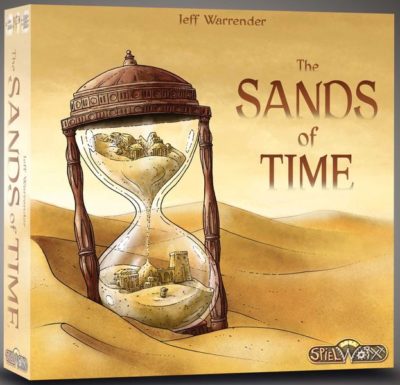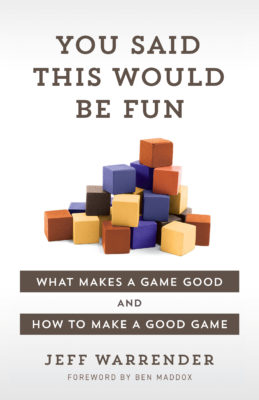Welcome!
Our Products
The Sands of Time
The sands of time sweep across the ages, burying the cities and monuments of civilizations, leaving only whispers of the glory of ancient societies.
The Sands of Time is a civilization-building game set loosely in classical antiquity, on a board inspired by a Roman-era map. Each player rules over a civilization in the ancient world, attempting exploits that will be remembered long after the civilization has withered. Each turn, players will select two action cards, which represent edicts delivered by the player to his populace, announcing what aspects of the empire he/she wishes to address: building structures, implementing advances, migrating population, initiating combat, annexing new territories, instituting reforms to manage the empire’s unrest, building trade routes, demanding tribute, and — crucially –- recording Chronicles about his/her reign.
The central element of the game’s scoring system, Chronicle cards represent claims of great accomplishments. To score a chronicle, the player must have a “heritage” level commensurate with the claim he/she is making: claims of great works will only be believed and perpetuated if the player’s civilization has established a reputation in the relevant civilization category (cultural, civil, or political).
Actions generally require the payment of resources (crops or gold), and action costs correlate either to the player’s empire size or the player’s Unrest level. Unrest increases when a player’s territories become too crowded, or when a player re-uses an action card, or when a player voluntarily presses on his populace to squeeze additional productivity out of them. Managing Unrest is a central concern for the player throughout the game.
Players must strike the right balance between competition and peaceful interaction with their neighbors, to propel their civilizations from insignificant, forgettable kingdoms into empires worthy of the attention of historians!
The Sands of Time was published by Spielworxx in 2018 and is currently out of print.
View BookBackyard Baseball
Backyard Baseball captures the spirit of an impromptu game played by two teams of two kids each. The game lasts three innings. Each half-inning consists of a series of plays, each of which has four steps:
1. The fielding player positions the fielder pawn, then secretly chooses a pitch card.
2. The batter chooses a batting card, both players reveal their cards, and roll the die.
3. Compare the roll to the # on the pitcher’s card; if it’s less, check the pitcher’s card to see where the ball goes, otherwise use the batter’s card. If the fielder pawn is there, it’s an out, otherwise it’s a hit!
4. The batter may try to extend the play and advance the runner(s), but the pitcher gets to play a card to try to throw the lead runner out.
The batting team only has two pawns, so when a pawn that’s on base has to bat, it’s replaced with a ghost runner.
If a runner reaches home, the batting team scores a point (run).
After three outs, the teams switch roles and repeat the process.
The team with the higher score after three innings wins!
All proceeds from the sale of this game will be donated to CurePSP, the society dedicated to finding treatment for Progressive Supranuclear Palsy, in memory of my Dad, who passed away from the disease in 2007.
The Acts of the Evangelists
In this competitive strategy game, travel back to the 1st century Roman Empire to compose the texts that history will know as the Christian Gospels. Journey to different cities and claim traditions about Jesus of Nazareth, and write them into the pages of your gospel, then interview the eyewitnesses to the stories to strengthen your text. Combine eyewitness testimony, literary devices, and themes to score well and write the best gospel of all!
2-5 players, Ages 10+, 15 minutes per player
SOLD OUT
The Acts of the Evangelists is sold out. We have no plans to reprint. The Print-and-Play version of the game is still available.
You Said This Would Be Fun
Good games don’t emerge out of thin air. Game design is a craft, and as in any other craft, there are skills and knowledge, acquired through study and practice, that accelerate progress toward better games. You Said This Would Be Fun explores these skills, showing how great games exhibit qualities that designers of all experience levels can strive to emulate. There are many game design journeys — that of the first-time designer with a fresh idea, the experienced designer looking for new approaches, the enthusiast seeking a deeper understanding of how games work — and if you are on (or considering joining) any of these, this book will be a useful guide to help you along your way.
View Book



